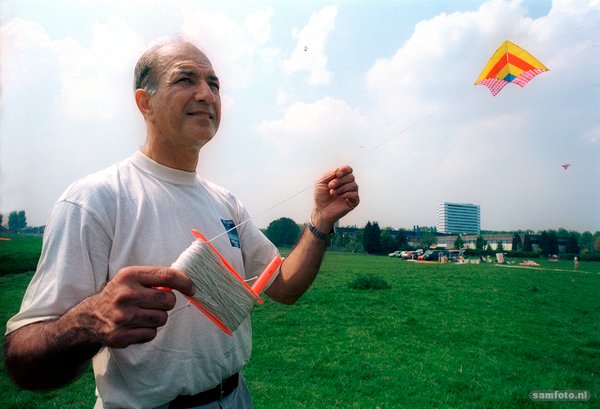Ockels’ legacy
The famous astronaut and Delft professor Wubbo Ockels passed away five years ago. After his 1985 space mission, which made him realise how vulnerable Earth is, he launched many sustainable projects. What’s left of that legacy today?
The solar car, solar boat, Superbus and ladder mill – these are just a few of the ideas that Ockels worked on at TU Delft. Ockels’ design for the ladder mill, an energy-generating kite, led to the Airborne Wind Energy network which, through European funding, employs 14 PhD students, as well as to an annual global conference and the start-up Kitepower, which is developing the future generation of wind energy systems.
For years he coached the Nuna team, which, thanks to his efforts, was able to build highly efficient solar panels into their cars. The Solar Boat Team also competed at the very top under his leadership. These student dream-teams are still successful today. The Nuna has won many world titles in Australia and South Africa. And the Solar Boat Team has high ambitions this summer: to be crowned world champions in Monaco – where they will race on the open sea – and to become the fastest solar boat ever to cross the Channel.
Joris Melkert, who worked with Ockels for many years, praises Ockels’ positive influence on thinking about sustainability: “He stressed that sustainability means more rather than less if you approach it in a smart way. Ockels’ greatest legacy is that he has trained a whole new generation of students who are spreading his knowledge around the world. He was at the forefront of a whole new kind of thinking, a new state of mind.”
